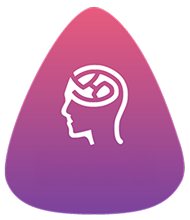Read an article with a view opposite to your own on startups, summarize its strongest point in one sentence.
When facing a tough concept, ask: “What’s another way to see this?” and write down one new angle.
Do one study habit differently today, change order, method, or tools, to stretch your mental flexibility.
Read outside your field, note one concept from another subject you could apply to entrepreneurship.
Challenge your default approach in a class task, do it differently today and record what you learn.
Use the phrase “That’s interesting, tell me more” when classmates challenge your startup ideas.
Journal about when rigid thinking limited a project, what would more openness have created instead?
Reflect on your reaction to new course material, do you resist, explore, or experiment with possibilities?
Describe when you adapted well to a surprise in class, what mindset helped you shift perspective?
Write about a belief you’ve outgrown as a student, what helped you finally change your mind?
List three recent challenges in your program, did you explore multiple angles or get stuck in one?
Explore how curiosity shows in your learning, when do you ask “what if,” and when do you shut it down?
Present a new angle in class that challenges the usual view, invite debate, not full agreement.
Switch roles in a project, see it from a teammate’s perspective and adjust your approach.
Attempt something intellectually scary this week, then reflect on what you learned.
Pick a familiar topic and explain it as if to a beginner, stretch your perspective.
Use a “yes, and” response in group debate, build on others’ ideas before critiquing.
Ask your peers to challenge your startup idea, respond with curiosity and clarifying questions.
Ask a peer to point out when you sound closed-minded in discussions, what behaviors signal that?
Share a recent mindset shift with a classmate, ask how their perspective has changed lately.
Ask a classmate for feedback on your flexibility in brainstorming, do you invite or block ideas?
Start a chat with someone outside your program, ask how they approach adapting to change.
Share how you made a complex decision, ask for input on where you could’ve been more open.
Create a “blind spot swap” with a peer, exchange areas you both tend to overlook.
Reframe “That’s not how we do it” as “What if we test it once to learn and adapt?”
Instead of “That idea won’t work,” ask: “Under what conditions could this succeed?”
Recast uncertainty as optionality, more possible paths, not only more problems.
When stuck, ask: “What if the opposite were true?”, see what new ideas emerge.
See conflicting opinions in teamwork as data, what might they account for that you missed?
Reframe mistakes as data points in a learning model, adjust and test again.
Notice when you instantly reject a peer’s idea, what emotion or bias might be driving that reaction?
Track your inner response when challenged, do you feel curious, threatened, or indifferent at first?
Observe your response to surprise instructions, freeze, pivot, or adapt, what’s your first instinct?
Watch someone handle rapid course changes, what thoughts seem to guide their flexible behavior?
Observe workshops where innovation thrives, what mindset traits are visible in those rooms?
Track your language in uncertain tasks, do you ask “what if,” or insist “that’s not possible” first?


 Give Feedback
Give Feedback
